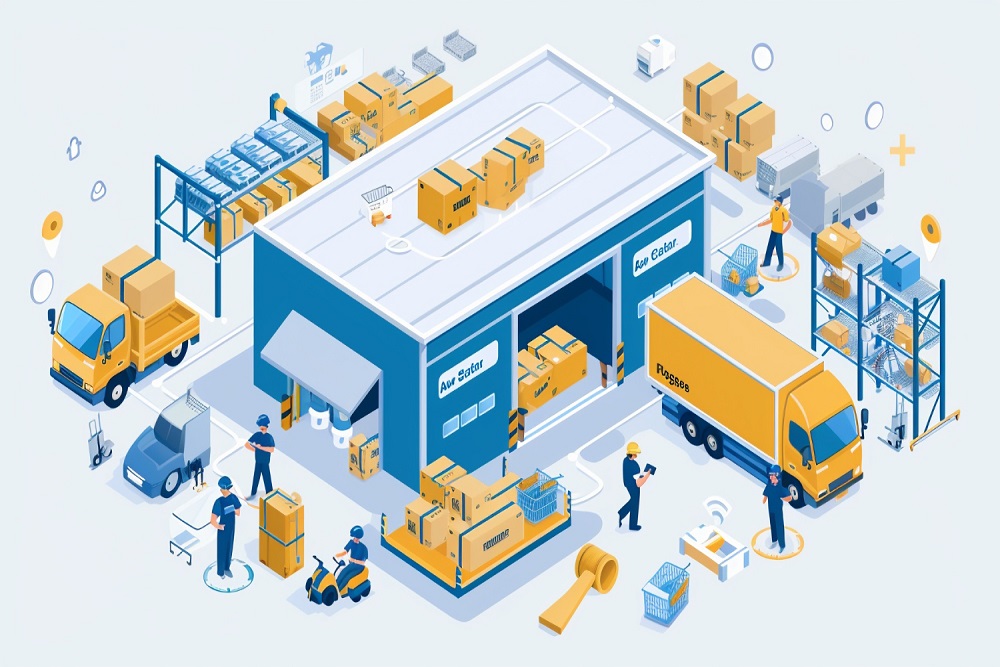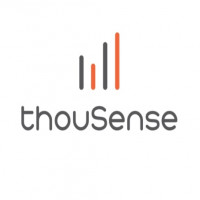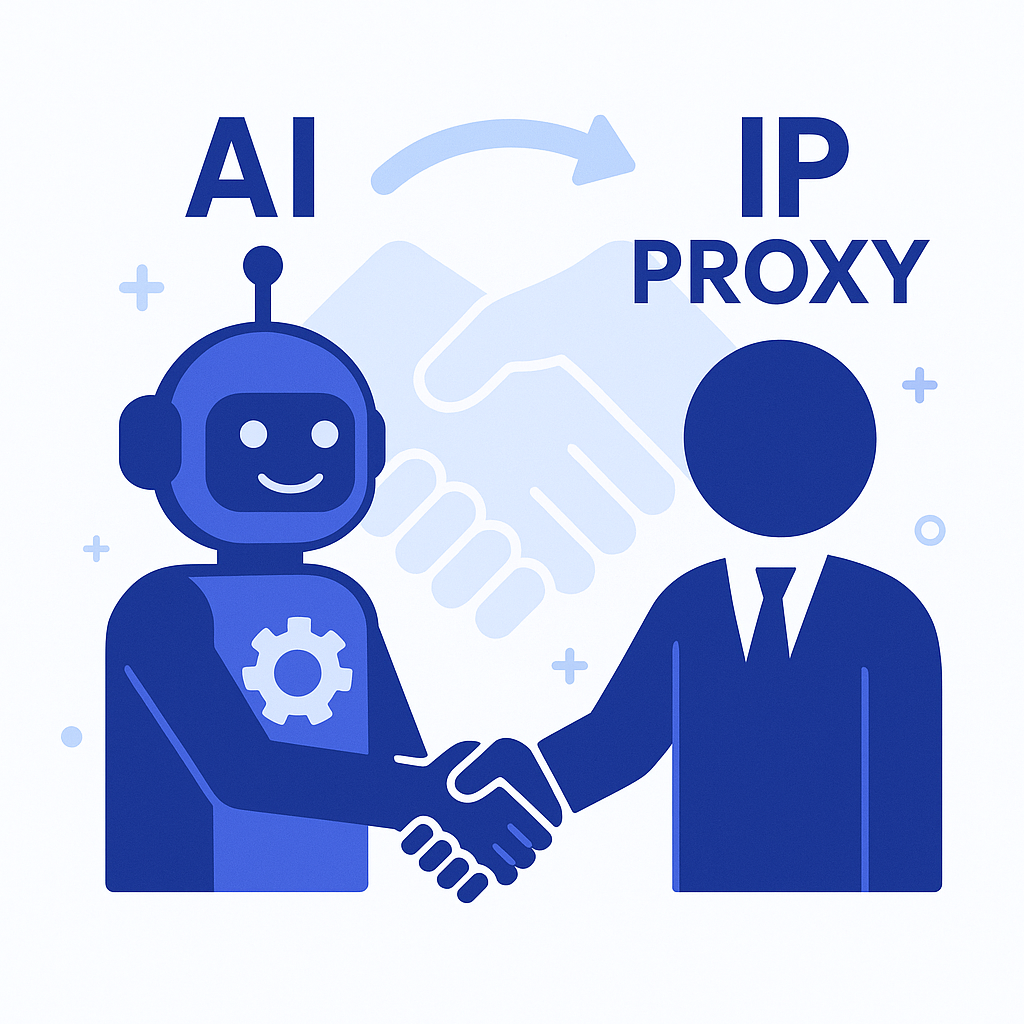How AI and Predictive Analytics Improve the Elements of SCM

Strong 8k brings an ultra-HD IPTV experience to your living room and your pocket.
Supply Chain Management (SCM) is key to a successful business. It ensures goods and services move smoothly, from raw materials to final delivery. But managing a supply chain isn’t always easy. With increasing complexities and rising customer demands, old methods often fail to keep up. That’s where Artificial Intelligence and predictive analytics come in. These technologies are changing the way supply chains work, making them faster, more efficient, and more accurate. Let’s look at how they’re transforming the elements of SCM.
What Are the Elements of SCM?
The elements of SCM are the key components that ensure a supply chain functions smoothly. These include planning, sourcing, manufacturing, delivery, and returns. Planning focuses on demand forecasting and resource allocation. Sourcing ensures reliable suppliers for raw materials. Manufacturing transforms raw materials into finished goods, while delivery ensures products reach customers on time. Returns manage defective or unused goods, ensuring customer satisfaction.
Each of these elements plays a vital role. Traditional methods often struggle to meet modern demands, but AI and predictive analytics offer new solutions to overcome these challenges.
How AI Improves SCM
AI is a game-changer in supply chain management. It automates tasks, processes vast amounts of data, and offers real-time solutions, bringing precision and speed to the elements of SCM.
Smarter Demand Forecasting
Demand forecasting has always been a challenge for supply chains. AI transforms this process by analyzing historical data, market trends, and external factors like weather. This allows businesses to predict future demand more accurately. For example, a retail business can forecast sales spikes during holidays or seasonal trends. With AI, businesses can avoid stock shortages, reduce excess inventory, and meet customer demands efficiently. This level of accuracy not only minimizes waste but also improves customer satisfaction.
Real-Time Inventory Management
Inventory management can make or break a supply chain. AI provides real-time insights into stock levels, ensuring that businesses can respond quickly to changes in demand. When stock levels drop, AI-powered systems automatically reorder supplies to prevent shortages. Slow-moving products are flagged, helping businesses optimize storage and reduce costs. Real-time updates also enable businesses to track inventory across multiple locations, ensuring better coordination and efficiency in supply chain operations.
Better Decision-Making with AI
Making the right decisions in supply chain management often involves analyzing multiple factors like cost, quality, and timing. AI simplifies this process by processing large datasets and delivering actionable insights. For instance, businesses can use AI to choose the best suppliers based on past performance, reliability, and cost-effectiveness. AI also optimizes delivery routes, saving time and reducing transportation costs. Additionally, it aligns production schedules with demand forecasts, preventing delays and bottlenecks. These smarter decisions improve efficiency across the supply chain.
Automating Logistics Operations
Logistics is one of the most complex elements of SCM. AI is revolutionizing logistics through automation. Self-driving trucks, for example, reduce reliance on human drivers while improving delivery precision. AI-powered route optimization ensures that shipments reach their destinations faster and with lower fuel costs. Real-time shipment tracking keeps customers informed, enhancing trust and satisfaction. Automated warehouses equipped with AI systems further streamline operations by reducing errors and speeding up order fulfillment.
How Predictive Analytics Enhances SCM
Predictive analytics takes a forward-looking approach, helping businesses anticipate challenges and seize opportunities in the elements of SCM. It uses past and present data to forecast future trends, risks, and outcomes, enabling businesses to plan proactively.
Preventing Disruptions
Supply chain disruptions can arise from unexpected events such as natural disasters, supplier issues, or political instability. Predictive analytics identifies potential risks before they happen. For instance, it can forecast how a storm might delay shipments or highlight a supplier’s financial instability. This allows businesses to create contingency plans, source alternative suppliers, and minimize downtime. Preventing disruptions helps maintain a steady flow of goods and services, ensuring customer satisfaction.
Strengthening Supplier Relationships
Suppliers are critical to supply chains, and predictive analytics helps businesses build and maintain strong partnerships. By evaluating supplier performance, businesses can identify reliable partners and address any issues early. Predictive models also support better contract negotiations by providing insights into market trends and supplier capabilities. With stronger supplier relationships, businesses can ensure a steady supply of materials and improve overall supply chain reliability.
Boosting Production Efficiency
Predictive analytics identifies inefficiencies in production processes, helping businesses make improvements before problems escalate. For example, predictive models can alert businesses when machinery is likely to fail, allowing for timely maintenance. This prevents costly downtime and keeps production running smoothly. Additionally, predictive analytics aligns production schedules with demand forecasts, ensuring resources are used efficiently and waste is minimized.
Improving Customer Experience
A well-functioning supply chain directly impacts the customer experience. Predictive analytics helps businesses anticipate customer needs by analyzing buying patterns and preferences. This ensures popular products are always in stock, reducing customer frustration and increasing satisfaction. By predicting demand spikes or seasonal trends, businesses can prepare in advance, delivering a seamless shopping experience that builds customer loyalty.
thouSense: Transforming SCM with Smart Solutions
Platforms like thouSense are at the forefront of AI and predictive analytics in SCM. thouSense provides businesses with tools to improve the elements of SCM, such as:
- Unified Data Platform: Combines all supply chain data in one place.
- Advanced Analytics: Offers actionable insights for smarter decision-making.
- Custom Solutions: Adapts to specific business needs.
- Real-Time Monitoring: Tracks supply chain performance continuously.
Using thouSense, businesses can simplify their supply chains, reduce costs, and stay prepared for future challenges.
Benefits of AI and Predictive Analytics in SCM
Incorporating AI and predictive analytics into the elements of SCM brings several benefits:
Cost Savings
Automating tasks and optimizing processes reduce operational costs, while predictive analytics minimizes waste and inefficiencies.
Improved Agility
Businesses can respond faster to changes in demand or disruptions, making their supply chains more flexible.
Better Collaboration
AI tools enhance communication across the supply chain, aligning everyone toward common goals.
Sustainability
Efficient use of resources, reduced waste, and optimized logistics contribute to greener supply chains.
Challenges and How to Overcome Them
Integrating AI and predictive analytics into SCM comes with its challenges, such as:
- Data Silos: SCM data often comes from different systems. Solution: Use platforms like thouSense for unified data management.
- High Costs: Advanced technologies can be expensive. Solution: Start with scalable tools like predictive analytics.
- Skill Gaps: Employees may lack expertise in using these tools. Solution: Provide training or hire skilled professionals.
The Future of SCM
The future of SCM lies in leveraging AI and predictive analytics to make supply chains smarter, faster, and more reliable. Businesses that embrace these technologies will stay ahead in an increasingly competitive market. Platforms like thouSense make this transition easier, ensuring businesses can optimize their elements of SCM and thrive in the long run.
Conclusion
AI and predictive analytics are changing supply chain management in big ways. They automate tasks, help businesses make better decisions, and predict future problems before they happen. Tools like thouSense give companies the support they need to stay ahead in today’s fast-moving world. Now is the perfect time to embrace these technologies, as they can make supply chains smarter, faster, and more efficient, giving businesses a clear advantage.
FAQs
- What are the main elements of SCM?
The main elements of SCM are planning, sourcing, manufacturing, delivery, and returns.
- How does AI improve supply chains?
AI automates tasks, predicts demand, and optimizes inventory, logistics, and decision-making.
- What is predictive analytics in SCM?
Predictive analytics uses past and present data to forecast future trends and risks, helping businesses prepare for challenges.
- How does thouSense improve SCM?
thouSense provides tools for data integration, advanced analytics, and real-time monitoring to optimize the elements of SCM.
- What challenges arise when using AI in SCM?
Challenges include high costs, data integration issues, and skill gaps, which can be addressed with tools like thouSense and proper training.
Note: IndiBlogHub features both user-submitted and editorial content. We do not verify third-party contributions. Read our Disclaimer and Privacy Policyfor details.







